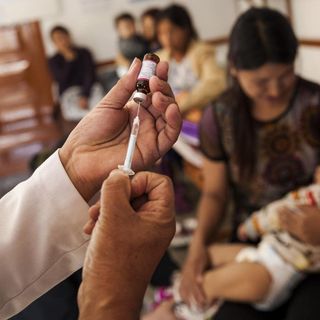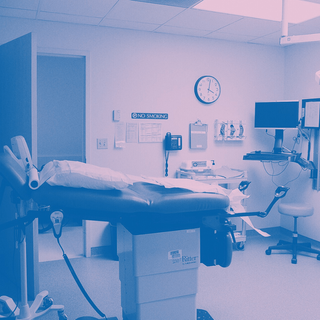On Monday, India’s apex body for biomedical research, the Indian Council of Medical Research (ICMR), said it may be possible for coronavirus to get transmitted from a mother to the child, before birth or at the time of delivery.
“With regard to vertical transmission (transmission from mother to baby [before birth] or [during labour]), emerging evidence now suggests that vertical transmission is probable, although the proportion of pregnancies affected and the significance to the neonate (new born) has yet to be determined,” the ICMR stated.
ICMR said currently, no cases of breast milk have tested positive for coronavirus and there is also no data to suggest the link between miscarriage or early pregnancy loss and Covid19. At this point, it is also not clear whether newborns infected with Covid19 are at a high risk of facing complications but its transmission after birth through contact with those infected and their respiratory secretions is of concern, the ICMR added.
The ICMR also clarified that pregnant women aren’t more vulnerable to catching Covid19 compared to the general population, but that pregnancy generally alters the immune system, making the chances higher that pregnant women could experience severe symptoms.
Related on The Swaddle:
How Likely Are You to Get Coronavirus? Very.
“This is a new virus, whose ways we are still understanding but there are indications that vertical transmission is possible. But we are still learning. However, it is important that during pregnancy and during labour, health workers and the baby who come in contact with the mother’s body fluids take special precautions. Isolation of the baby too is important,” said Dr. Vinod Paul, member of the Indian government’s think tank, NITI Aayog, and chairman of the empowered group of medical emergency management plan for COVID-19, to Indian Express.
U.S.-based Centers for Disease Control and Prevention (CDC) has said it is unlikely for coronavirus to be transmitted during pregnancy, but after birth, a newborn may be susceptible to person-to-person spread. “A very small number of babies have tested positive for the virus shortly after birth. However, it is unknown if these babies got the virus before or after birth. The virus has not been detected in amniotic fluid, breastmilk, or other maternal samples,” the CDC stated in their guidelines issued in the initial stages of the pandemic in 2019.
However, after three babies born to mothers in Wuhan tested positive for Covid19, in a paper published in JAMA Pediatricsin March 2020, the authors concluded that they cannot rule out mother-to-fetus transmissions. The ICMR states their observations are based on growing evidence that supports vertical transmission, but the CDC is yet to clarify its stance. In the meantime, the numbers of babies testing positive for Covid19 is only increasing.
ICMR also asked hospitals to consider separating a mother — who has Covid19 or is a suspect — from her child until she is declared safe. Hospitals have also been advised to ensure women in obstetric units are appropriately isolated from each other.
While health experts have yet to determine the exact mechanism through which newborns are contracting Covid19, the ICMR’s guidelines represent an abundantly cautious approach.




